 Title: Know Not
Title: Know Not
Author: Joshua Scribner
Publisher: Self-Published
Publication Date: January 26, 2021
Genres: Science Fiction, Paranormal, Contemporary
Length: 10 pages
Source: I received a free copy from the author.
Rating: 3 Stars
Blurb:
A brilliant scientist’s vocabulary is now limited to a few words. His daughter wants to know why. Doctors can’t tell her. Maybe someone else can.
Review:
Content Warning: Religion and brain damage that leaves someone unable to communicate.
Everything happens for a reason…right?
Marie’s relationship with her dad made me smile. Their personalities were incredibly similar, and they clearly loved each other quite a bit. It’s always nice to meet characters who have stable, close families, and that foundation only made her father’s medical emergency more heartbreaking for me as a reader. I held my breath as I waited to see if the doctors could tell them why her intelligent and scholarly dad was suddenly unable to do something as simple as have a conversation about his feelings.
I found myself wishing for more details when the explanation was shared at the end of this short story. Yes, it made some sense given the world building that had happened earlier, but there were plot holes regarding how certain characters had this knowledge and how they knew it to be true that were never filled in. I know I’m being vague here, but it’s hard to give specific examples without sharing spoilers. My reaction to the final scene simply wasn’t what I hoped it would be. If only there had been a few more pages that dove more deeply into the conclusion.
With that being said, I enjoyed the characters’ determination to find an alternative explanation for the health problems Marie’s dad was experiencing once the medical establishment ran out of possibilities. Reaching the end of current medical knowledge is an incredibly frustrating experience, especially for someone who became as disabled as her dad did. I understood why they turned to religious leaders for advice as a last-ditch effort, and I thought it made the storyline stronger to show why some people make that decision under such circumstances.
Know Not was thought provoking.

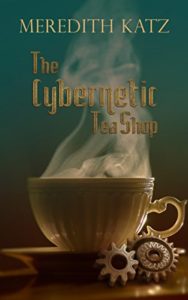 Title: The Cybernetic Tea Shop
Title: The Cybernetic Tea Shop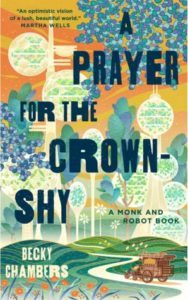 Title: A Prayer for the Crown-Shy
Title: A Prayer for the Crown-Shy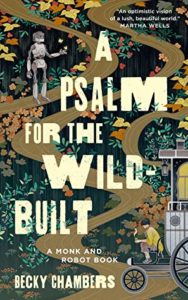 Title: A Psalm for the Wild-Built (Monk & Robot #1)
Title: A Psalm for the Wild-Built (Monk & Robot #1)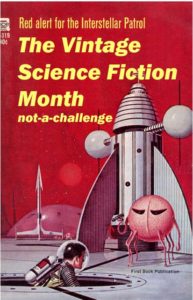
 Rating: 4 Stars
Rating: 4 Stars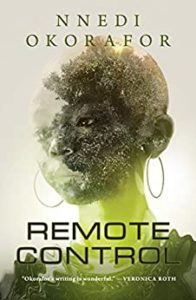 Title: Remote Control
Title: Remote Control Let’s start this conversation off with some quick definitions.
Let’s start this conversation off with some quick definitions.